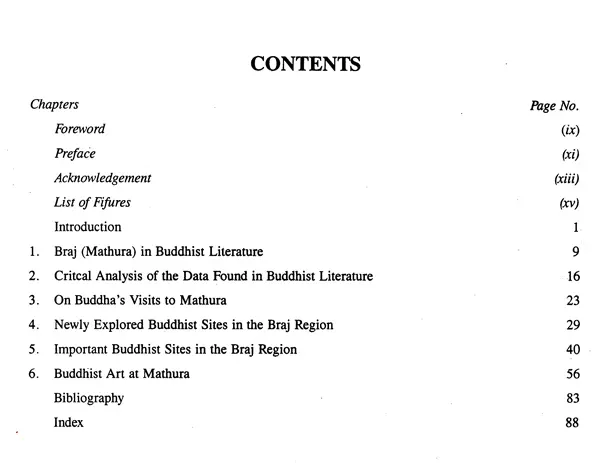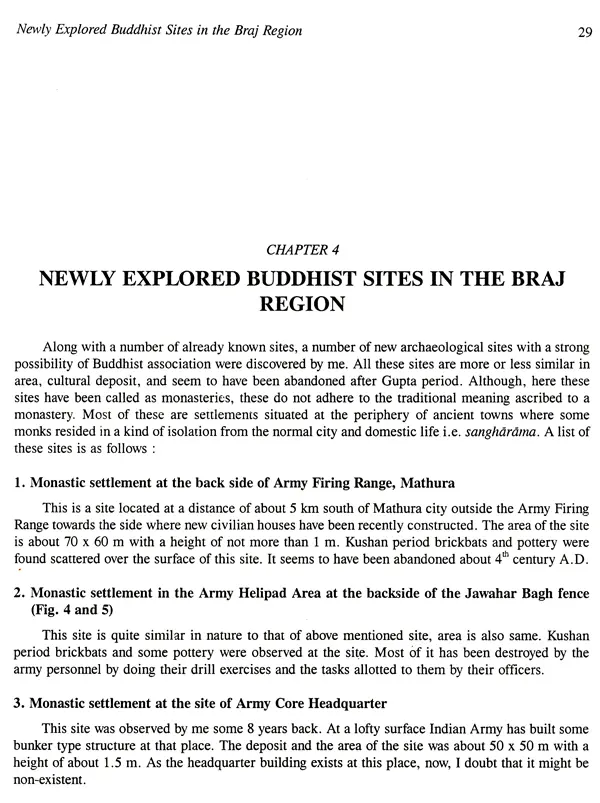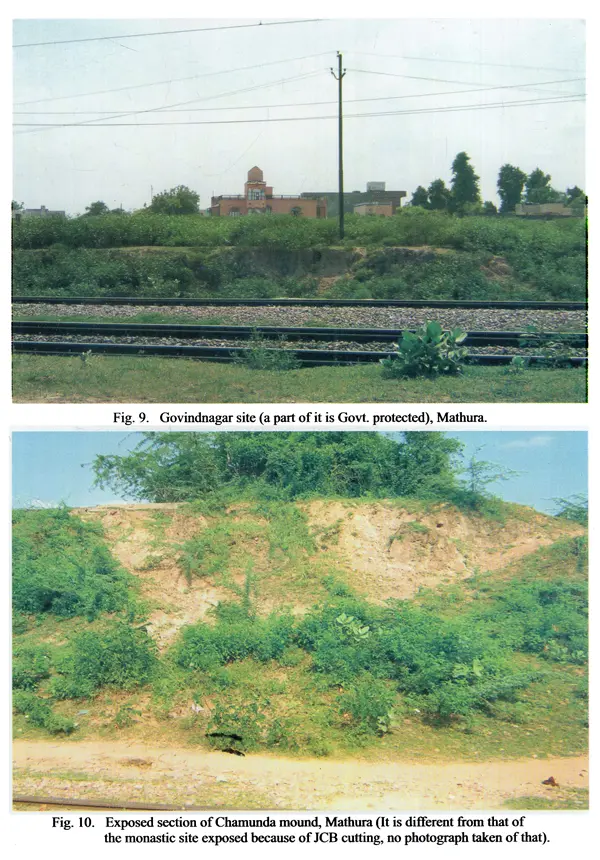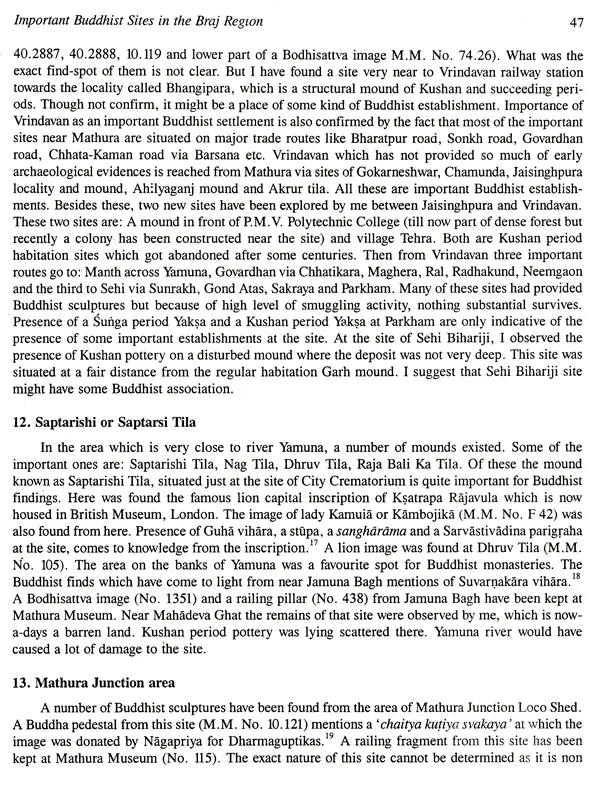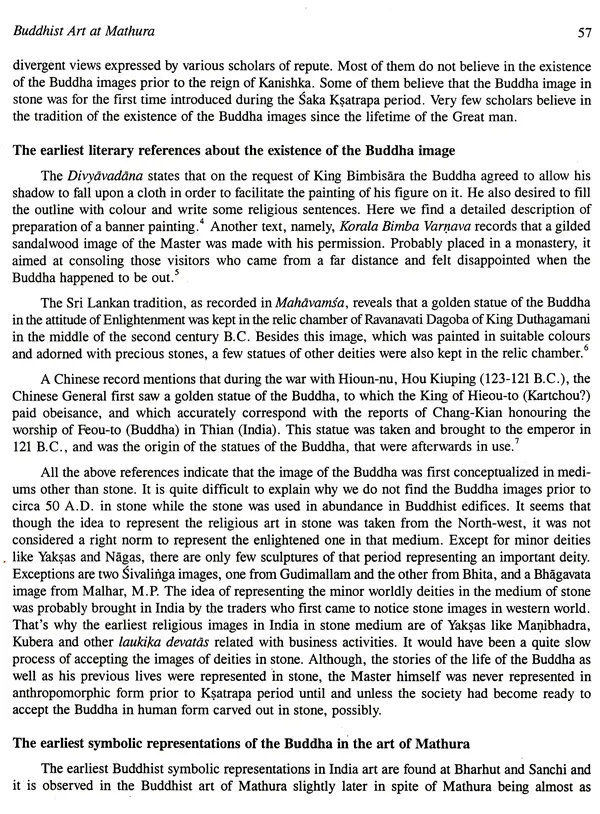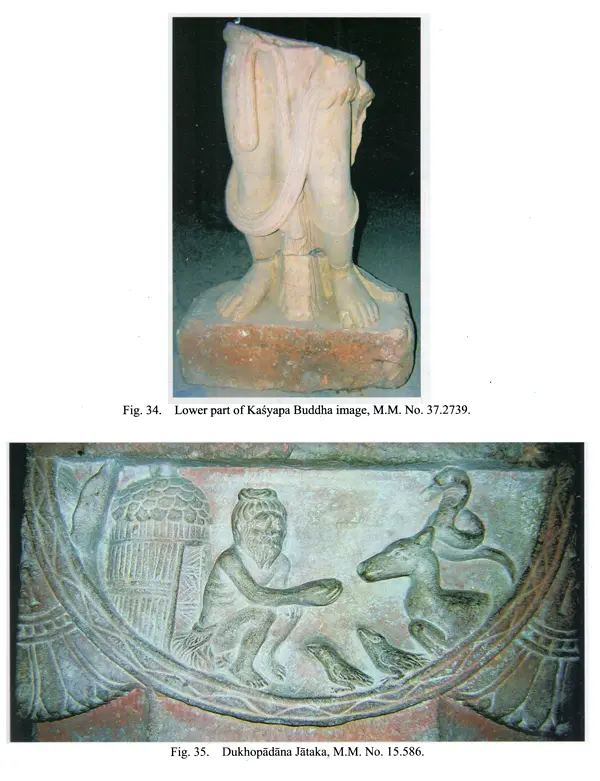
Buddhism in Mathura: A Detailed Study of Buddhist Tradition, Archaeology and Art
Book Specification
| Item Code: | UAN517 |
| Author: | Vinay Kumar Gupta |
| Publisher: | Bharatiya Kala Prakashan |
| Language: | English |
| Edition: | 2009 |
| ISBN: | 9788180902413 |
| Pages: | 117 |
| Cover: | HARDCOVER |
| Other Details | 11.00 X 9.00 inch |
| Weight | 740 gm |
Book Description
The present work of Vinay is particularly related to Buddhism in the Braj region of Mathura that includes the nearby districts of Aligarh, Hathras and Agra in Uttar Pradesh and districts of old Gurgaon in Haryana and Bharatpur in Rajasthan, and some places still further away He has been successful in thoroughly delving into all the references related to Mathura region that have come in various ancient Buddhist texts. The identification of many of these sites mentioned in the texts with the sites which he found during his painful archaeological explorations is a welcome contribution of the work. He has discussed the information provided by the two Chinese pilgrims Faxian and Xuanzang in detail and has tried to correlate the facts with the region of Braj. He has also discussed the probable routes of these travellers for coming in and going out of the Braj region. He has also discussed in detail the possibilities of the Buddha's journey to the region of Braj as mentioned in the Pals and the Sanskrit avadana literature. An analysis of the five defects (patcha-adtnata) believed to have been told by the Buddha about Mathura in both the Pali and the Sanskrit literature have also been made by him along with the probable routes which the Buddha might have followed.
A very significant contribution of this work is the discovery of more than 30 new Buddhist sites. consisting of small monastic settlements and a few possible stupa sites by him. If all these discoveries are taken into account, then the overall number of the Buddhist sites in the vicinity of Mathura would exceed much further than the previous assumptions of the scholars. In a way these discoveries indicate towards the fact that the city of Mathura was not the only place where Buddhist sculptures were carved but at a number of small and large sites in the vicinity of Mathura and even in the greater Braj region sculptors were involved in the carving of Buddhist sculptures during the Kushan period. His discovery of a factory site near Narhauli village and a site situated near Triveni factory indicates it. In the greater Braj region, the already known sites of Lakhnu and Maho in district Hathras, here dis cussed by him in a proper context, also tend to suggest this postulation.
The first chapter of the book deals with all the literary references about Mathura as could be collected from the ancient Buddhist texts. The literary references have been divided in the following categories: the Pali Tripitaka and the Arghakathar, the Sanskrit Avaddnu literature, the Vinay texts of the Mola-Sarvästivädins and the travel accounts of Chinese pilgrims Fa-hian and Hiuen-Tang Many references deal with the visit of the Buddha to the region of Mathura and are an important source to determine the location of various ancient sites. The accounts of Chinese pilgrims present an important picture of the cultural and religious aspects of Gupta period Mathura.
The second chapter makes a critical analysis of the data found in the Buddhist literature and presents an innovative research as it deals with the identification of all those sites mentioned in Buddhist literature which are related with the Braj region. The name of places in the region of Braj. which finds mention in the Budhhist literature and have been attempted to identify are: Gunda vana Bhadrava, Ojala, Veranja, Vairambha, Akkosa, Kardama daha along Varana, Nalerunimba, Kimila Agga and Agrapuri.
The third chapter deals with the analysis of the data found in the Buddhist literature. It deals with the prospects of the visits of the Buddha to the region of Mathura and the probable routes of his journey. It also discusses the possibilities of the visits of two Chinese pilgrims, Fa-hian and Hiuen Tsang to the region, probable routes of their journey as well as an analysis of the data provided by them.
The chapter four gives a detailed account of more than thirty newly explored sites in the area of Mathura which might be identified as monasteries or stopa. These are a completely new addition to the existing information related with Buddhist sites in the Braj region. The chapter five provides a detailed list of all the already known Buddhist sites in the region of Mathura. Many of these have been included for the first time in such a study and provide all the information regarding their location, their present condition as well as the sculptural and epigraphic findings from there.
**Contents and Sample Pages**

